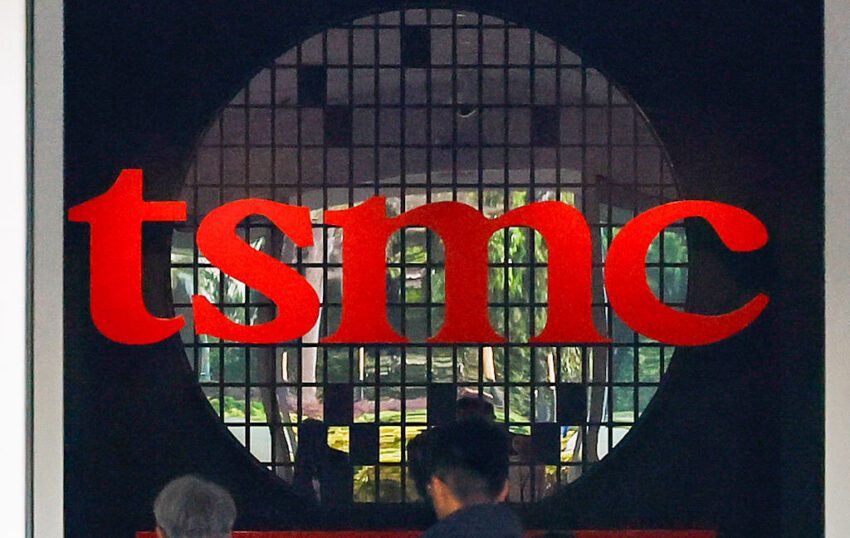
taiwan starts weaponizing chip access after us Taiwan has begun evolving its trade strategy to start wielding its dominant position as a leading supplier of cutting-edge chips as a weapon, Bloomberg reported.
taiwan starts weaponizing chip access after us
Context of Taiwan’s Chip Dominance
Taiwan has long been recognized as a global leader in semiconductor manufacturing, a position that has become increasingly significant in the context of geopolitical tensions. The island nation is home to Taiwan Semiconductor Manufacturing Company (TSMC), the world’s largest contract chipmaker, which produces chips for various industries, including consumer electronics, automotive, and telecommunications. This dominance in chip production has not only bolstered Taiwan’s economy but has also made it a crucial player in the global supply chain.
In recent years, Taiwan’s semiconductor industry has been viewed as a strategic asset in the face of rising threats from China. The Chinese government has consistently asserted its claim over Taiwan under the “one-China principle,” which has led to a complex relationship between Taiwan and its allies, particularly the United States. As tensions have escalated, Taiwan has sought to leverage its chip manufacturing capabilities to enhance its security and economic standing.
Shifting Trade Strategies
The recent announcement from Taiwan regarding the limitation of semiconductor shipments to South Africa marks a significant shift in its trade strategy. This move appears to be a response to both domestic and international pressures, particularly the ongoing trade war initiated by former U.S. President Donald Trump. The trade war has heightened competition between the U.S. and China, prompting Taiwan to reassess its role in the global semiconductor landscape.
By weaponizing its chip access, Taiwan is signaling a willingness to use its economic leverage as a tool for national security. This approach aligns with the broader U.S. strategy of countering China’s influence in the region. The U.S. has encouraged Taiwan to adopt a more assertive stance in its trade policies, particularly concerning countries that may be perceived as aligning with China.
Details of the Export Restrictions
On Tuesday, Taiwan’s government announced that it would be limiting shipments of semiconductors to South Africa, among 47 restricted products. This decision was driven by national security concerns, reflecting Taiwan’s growing apprehension about the potential for its technology to be used in ways that could undermine its interests or bolster adversaries.
The export restrictions could have significant implications for South Africa’s economy, particularly in sectors reliant on semiconductor technology. Industries such as electronics, telecommunications, and automotive manufacturing may face disruptions if they are unable to secure the necessary components from Taiwan. The Taiwanese government has indicated that South Africa will have 60 days to engage in discussions to negotiate better terms, highlighting the potential for diplomatic engagement amid economic tensions.
Implications for Global Supply Chains
The decision to restrict semiconductor exports to South Africa is emblematic of the broader challenges facing global supply chains in the semiconductor industry. As countries increasingly prioritize national security, the interconnected nature of the supply chain may be tested. Companies that rely on Taiwanese chips may need to reassess their sourcing strategies, potentially leading to increased costs and delays in production.
Furthermore, this development raises questions about the future of international trade in technology. As nations become more protective of their technological assets, the landscape of global trade may shift dramatically. Countries that have historically relied on Taiwanese semiconductors may need to explore alternative sources or invest in domestic manufacturing capabilities, which could take years to develop.
Reactions from Stakeholders
The announcement has elicited varied reactions from stakeholders in both Taiwan and South Africa. In Taiwan, government officials have framed the decision as a necessary step to safeguard national security. By limiting access to critical technology, Taiwan aims to prevent potential misuse that could threaten its sovereignty.
Conversely, South African officials have expressed concern over the potential impact of these restrictions on their economy. The country’s electronics and automotive sectors are vital components of its economic landscape, and any disruptions could have cascading effects on employment and growth. South African businesses may be compelled to engage in negotiations with Taiwan to secure favorable terms, but the outcome remains uncertain.
Geopolitical Ramifications
The geopolitical implications of Taiwan’s decision to weaponize chip access extend beyond its immediate trade relations. As tensions between the U.S. and China continue to escalate, Taiwan’s actions may be viewed as a strategic alignment with U.S. interests. The U.S. has been vocal in its support for Taiwan, particularly in the face of increasing Chinese aggression, and Taiwan’s willingness to leverage its chip dominance could further solidify this partnership.
Moreover, Taiwan’s actions may prompt other countries to reevaluate their own relationships with both Taiwan and China. Nations that have historically maintained ties with Taiwan may feel pressured to align more closely with the U.S. in response to China’s growing influence. Conversely, countries that have sought closer ties with China may face increased scrutiny from the U.S. and its allies.
Future of Taiwan’s Semiconductor Industry
The future of Taiwan’s semiconductor industry remains uncertain as it navigates these complex geopolitical dynamics. While the decision to limit exports may bolster Taiwan’s national security, it also raises questions about the sustainability of its economic model. Taiwan’s economy is heavily reliant on its semiconductor industry, and any disruptions to trade could have far-reaching consequences.
In response to these challenges, Taiwan may need to invest in diversifying its markets and exploring new partnerships. Strengthening ties with other countries that share similar concerns about China’s influence could help Taiwan mitigate risks associated with its reliance on specific markets. Additionally, Taiwan may need to enhance its domestic capabilities to ensure that it can continue to meet global demand for semiconductors.
Conclusion
Taiwan’s decision to weaponize its chip access marks a significant turning point in its trade strategy, reflecting the growing complexities of global geopolitics. As the island nation navigates its relationship with China and the U.S., its semiconductor industry will play a crucial role in shaping its future. The implications of this decision extend beyond Taiwan, affecting global supply chains and prompting other countries to reassess their own positions in a rapidly changing landscape.
As the situation unfolds, stakeholders will be closely monitoring developments in Taiwan’s semiconductor policies and their impact on international trade. The next 60 days will be critical for South Africa as it seeks to engage with Taiwan and negotiate terms that could mitigate the potential fallout from these export restrictions.
Source: Original report
Was this helpful?
Last Modified: September 24, 2025 at 9:37 pm
1 views















